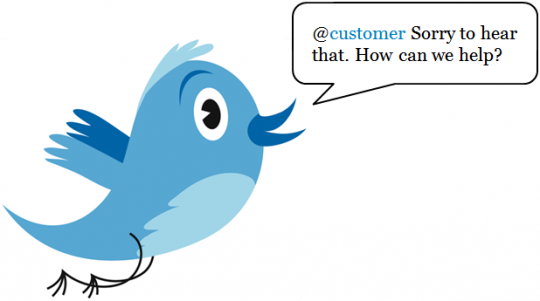Have Customer Service Tweets Gone Too Far?
 No matter what your company sells, great customer service is an integral part of a successful business. For years, many companies failed at customer service and left their customers dreading having to deal with helplines.
No matter what your company sells, great customer service is an integral part of a successful business. For years, many companies failed at customer service and left their customers dreading having to deal with helplines.
It’s easy to understand why. Being put on hold for what seems like hours; the irritating hold music; finally getting through only to be transferred to another department. Even when you do get through to someone who can help you, it can often be a strangely impersonal experience.
Now more and more people are ditching the helplines and heading to Twitter to get help more quickly. Businesses too have found that social media can be a brilliant way to build good customer relationships.
You probably know of examples of someone sending an aggressive tweet about a certain product or service and then getting an unsolicited, helpful response from said company. It might have even happened to you.
A case in point is 02. In 2012 the company experienced a two-day network outage and were inundated with tweets from irked customers.
It was a potential PR crisis. It would have been easy for O2 account to go into damage limitation mode and respond with the standard “We are currently experiencing temporary network issues, please bear with us.”
Instead, the team behind the customer service account decided to forgo corporate guidelines and respond with good humour.
Taking this route was risky but it paid dividends as users responded with widespread support. Other companies have tried to replicate O2’s success, but some social media managers may be taking too many risks with this approach.
Last week the Argos Helpers account responded to a complaint using the same street slang that the aggrieved customer had used. The tweet received well over 6,000 retweets and the story was picked up by the Daily Mail and Metro, so it could be seen as a PR coup. But some might have seen the tweet as rude, or even racist.
Whatever your view, it’s easy to see how some people might be offended. Imagine if you rang a helpline and the operator responded in this way. People always like to feel that they’re talking to a real person rather than a robot. For this reason, witty customer service tweets are generally successful. Despite this, social media managers should remember what their actual job is: to help customers; not use humour to gain retweets. In the wrong hands, a misjudged customer services response could land a company in a PR nightmare. JT









